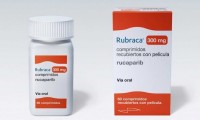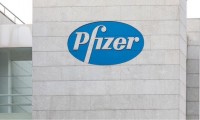-
AZ notches postmarket win for bleeding reversal agent Andexxa, plans to seek full approval
- Source: drugdu
- 119
- June 7, 2023
-
After selling Rubraca, Clovis Oncology unveils CRL for potential label expansion
- Source: drugdu
- 205
- June 7, 2023
-
Look out, GSK. Pfizer has its adult RSV vaccine approval and is raring to launch
- Source: drugdu
- 125
- June 5, 2023
-
AZ, Merck’s Lynparza wins FDA nod in prostate cancer subgroup following advisory committee vote
- Source: drugdu
- 144
- June 3, 2023
-
Merck’s Keytruda, Novartis’ Kisqali face their moment of truth in early-stage cancers
- Source: drugdu
- 119
- May 30, 2023
-
With Novartis circling, Lilly touts Verzenio’s ability to help cancer patients make memories in TV ad
- Source: drugdu
- 126
- May 27, 2023
-
Crick Institute announces new molecular glue discovery to treat different diseases
- Source: drugdu
- 113
- May 25, 2023
-
Despite rough quarter, Bayer’s duo of Nubeqa and Kerendia continue to excel
- Source: https://www.fiercepharma.com/pharma/rough-quarter-bayers-duo-nubeqa-kerendia-continue-excel
- 124
- May 14, 2023
-
Johnson & Johnson’s PARP combo nabs first global nod but faces tough fight against AZ, Merck’s Lynparza
- Source: drugdu
- 126
- May 3, 2023
-
Sanofi, Regeneron unveil ‘blow-out’ smoker’s lung drug data
- Source: drugdu
- 179
- April 28, 2023
your submission has already been received.
OK
Subscribe
Please enter a valid Email address!
Submit
The most relevant industry news & insight will be sent to you every two weeks.













